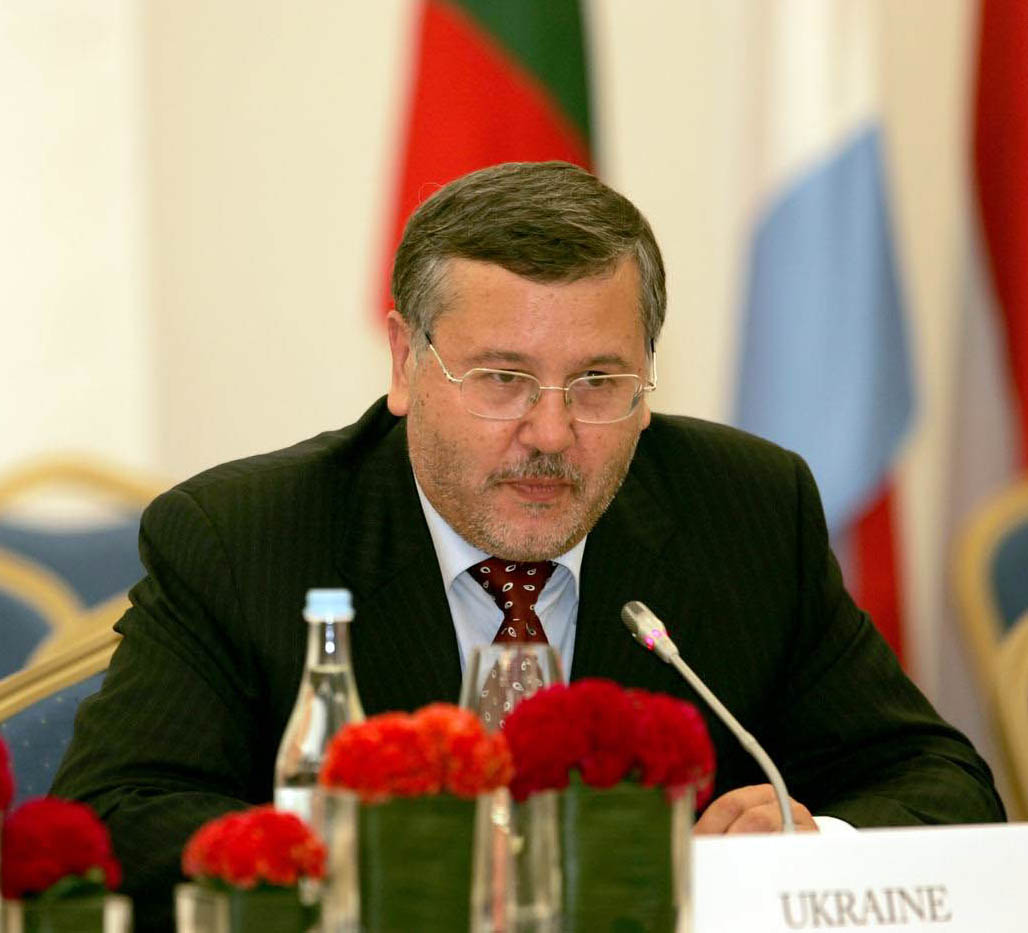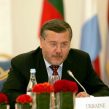
Ukraine Debates the Russian Threat
Publication: Eurasia Daily Monitor Volume: 6 Issue: 171
By:

The poor state of Ukrainian-Russian relations, as vividly noted in Russian President Dmitry Medvedev’s August letter to President Viktor Yushchenko, the expulsion of two Russian spies from Ukraine and Russia’s newly adopted law giving its military the right to intervene abroad is intensifying the debate in Ukraine over the Russian threat. On September 18 three journalists from the Rossiya channel were banned for five years from entering Ukraine for conducting "falsified information propaganda against Ukraine" (www.pravda.com.ua, September 18). Earlier, Medvedev told the Valdai Club that his letter had fulfilled its purpose (Ukrayinska Pravda, September 15).
Acting Foreign Minister Yuriy Kostenko explained that the expulsion of the two spies was seen by Moscow as an "aggressive attack against Russia, and a provocation" (Ukrayinsky Tyzhden, August 28-September 3). Russia did not attempt to understand Ukraine’s argument that the spies were acting in a manner "contrary to their diplomatic status."
Medvedev’s staunch and unprecedented criticism of Ukrainian domestic and foreign policies was worsened by the fact that two of the three leading presidential candidates -Party of Regions leader Viktor Yanukovych and Front for Change leader Arseniy Yatseniuk- supported the Russian side. On August 26 Yanukovych told a phone-in to Segodnya: "Never before have we had such unpleasant relations with Russia as at present."
Yanukovych promised that relations would improve if he is elected. Such promises echo the 1994 presidential elections when Leonid Kuchma claimed that he -rather than the incumbent Leonid Kravchuk- would be in a position to improve such relations. Both Kuchma and Yanukovych failed to see the deeper issue involved; namely, Moscow’s "refusal to recognize the existence of the Ukrainian nation," explained Volodymyr Horbulin, the former National Security and Defense Council (NRBO) Secretary and the security expert Valentyn Badrak (Zerkalo Nedeli, September 12-18). "In the last 18 years since the disintegration of the USSR the Kremlin elite has not come to terms with the existence of an independent Ukraine,’ as another Ukrainian newspaper noted (Ukrayinsky Tyzhden, August 28-September 3).
These experts suggested that the situation in Ukraine resembled Austria in the 1930’s before its anschluss with Germany (Ukrayinsky Tyzhden, August 28-September 3). Various political experts provided pessimistic answers as to why they did not believe that the quarreling Ukrainian elites could mobilize Ukrainians against a foreign aggressor.
Russia is held back from direct military intervention in Ukraine, Ukrainian experts believe, due to two factors. Firstly, it would destroy any hope of CIS integration. Secondly, "a war with Ukraine could destroy Russia as a state" (Ukrayinsky Tyzhden, August 28-September 3). If Russia successfully took the Crimea, "Moscow would forever lose Ukraine," Horbulin and Badrak asserted (Zerkalo Nedeli, September 12).
Although any Russian invasion into Eastern Ukraine or the Crimea might at first be successful, it would eventually be met by fierce resistance from guerrilla and loyal Ukrainian units. Interestingly, no Ukrainian experts believe that Russian aggression would be prevented by Moscow taking Western responses into consideration; this itself reflects the E.U. and NATO’s ineffectual response to the Russian invasion of Georgia.
Anatoliy Grytsenko, the former Ukrainian Defense Minister and the head of the parliamentary committee on defense and national security has advised the military to develop additional spetsnaz units capable of taking conflict deep into enemy territory (Profil, August 20). Horbulin, the director of the National Institute on the Problems of International Security, affiliated to the NRBO, and Badrak, a senior expert at the Kyiv think tank the Center for Research into the Army, Conversion and Disarmament, advised the NRBO to relocate spetsnaz units Special Forces, Security Service (SBU) and interior ministry units to southern and eastern Ukraine. Grytsenko also warned the E.U. and NATO to not continue to ignore the Russian threat, as any conflict in Ukraine might risk damaging the gas pipelines crossing Ukraine. Europe could not stand aside from such a conflict, as it could severely undermine European energy security.
Critical, but diplomatic, responses to Medvedev were given by Yushchenko and Prime Minister Yulia Tymoshenko. Tymoshenko, who is running second in the polls and is likely to face Yanukovych in the second round of the presidential election, has adopted a pragmatic nationalist position that has permitted her to court western and central Ukrainian voters while continuing a dialogue on energy and economic issues with Russia. Yushchenko, in contrast, has moved towards a more nationalistic position that has narrowed his support to only Galicia, giving him just 3 percent in opinion polls -making him the sixth most "popular" candidate.
Horbulin and Badrak concluded that following the 2008 Georgian-Russian war "international law" no longer works in dealing with Russia. Moscow wants to alter "the Ukrainian foreign policy trajectory, split the country and annex portions of its territory and indefinitely extend the basing of the Black Sea Fleet in Sevastopol. Russia seeks a ‘politically loyal, pro-Russian Ukraine’" (Ukrayinsky Tyzhden, August 28-September 3). In the January 2010 elections, Moscow also wants to see the election of a "Kremlin vassal who would lead the country as a Little Russia" (Zerkalo Nedeli, September 12).
Two conclusions can be drawn from this discussion. Firstly, Ukraine is being given an impossible task by western E.U. and NATO members: to pursue good relations with Russia at a time when it seeks to undermine Ukraine’s sovereignty and assassinate its pro-Western leaders (Ukrainian investigators reached the conclusion earlier this month that the Russian authorities were behind Yushchenko’s 2004 poisoning). Moreover, Ukrainian-Russian relations might deteriorate further in the next eight years as the deadline approaches for Russia to withdraw the Black Sea Fleet from Sevastopol.
The recent adoption of the Russian law on military intervention abroad provides for "the ability for a direct military threat from the Black Sea Fleet" (Zerkalo Nedeli, September 12). Horbulin and Badrak advised the SBU to ensure "control over extremist and radically oriented Ukrainian groups in the south and southeast of the country" (Zerkalo Nedeli, September 12).
Secondly, the West’s reputation is at stake in dealing with countries such as Iran and North Korea. Ukraine gave up the third largest nuclear weapons stockpile in 1994-1996 in return for "security assurances" from the five nuclear powers, one of whom -Russia- constitutes its main threat. In 2003, less than a decade after the "Budapest Memorandum," Russia sought to annex the Tuzla Island off the Crimean coast.
As Horbulin and Badrak argued, the nuclear powers are "de facto demonstrating a rejection of their responsibilities" and "those who are not speaking of a repetition of Munich in 1938 today in Europe and Ukraine are only ignoring the facts’ (Zerkalo Nedeli, September 12-18). If Tehran interprets Western policy towards Kyiv as weak, then it is less likely to halt its nuclear weapon ambitions.




